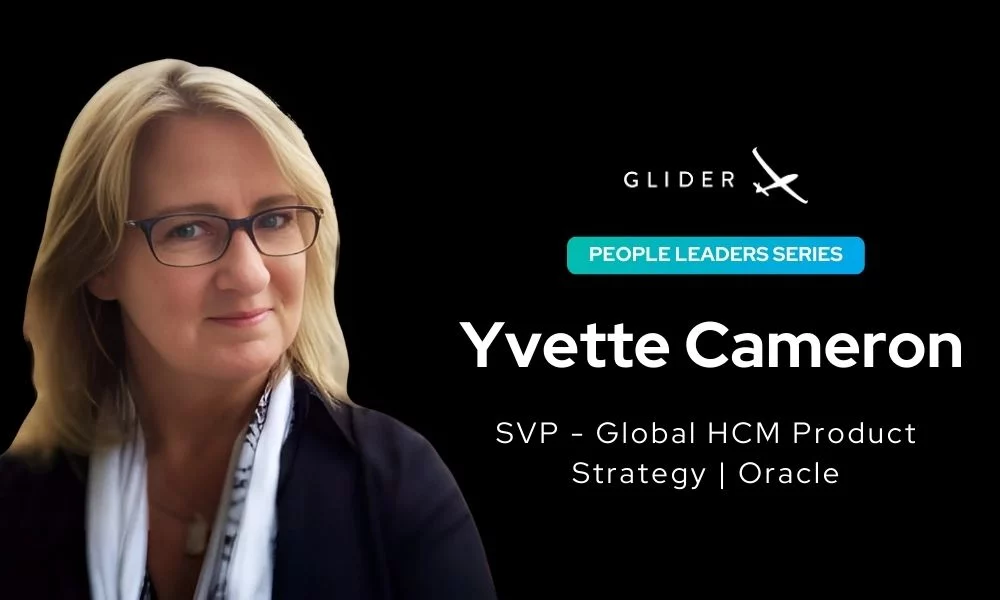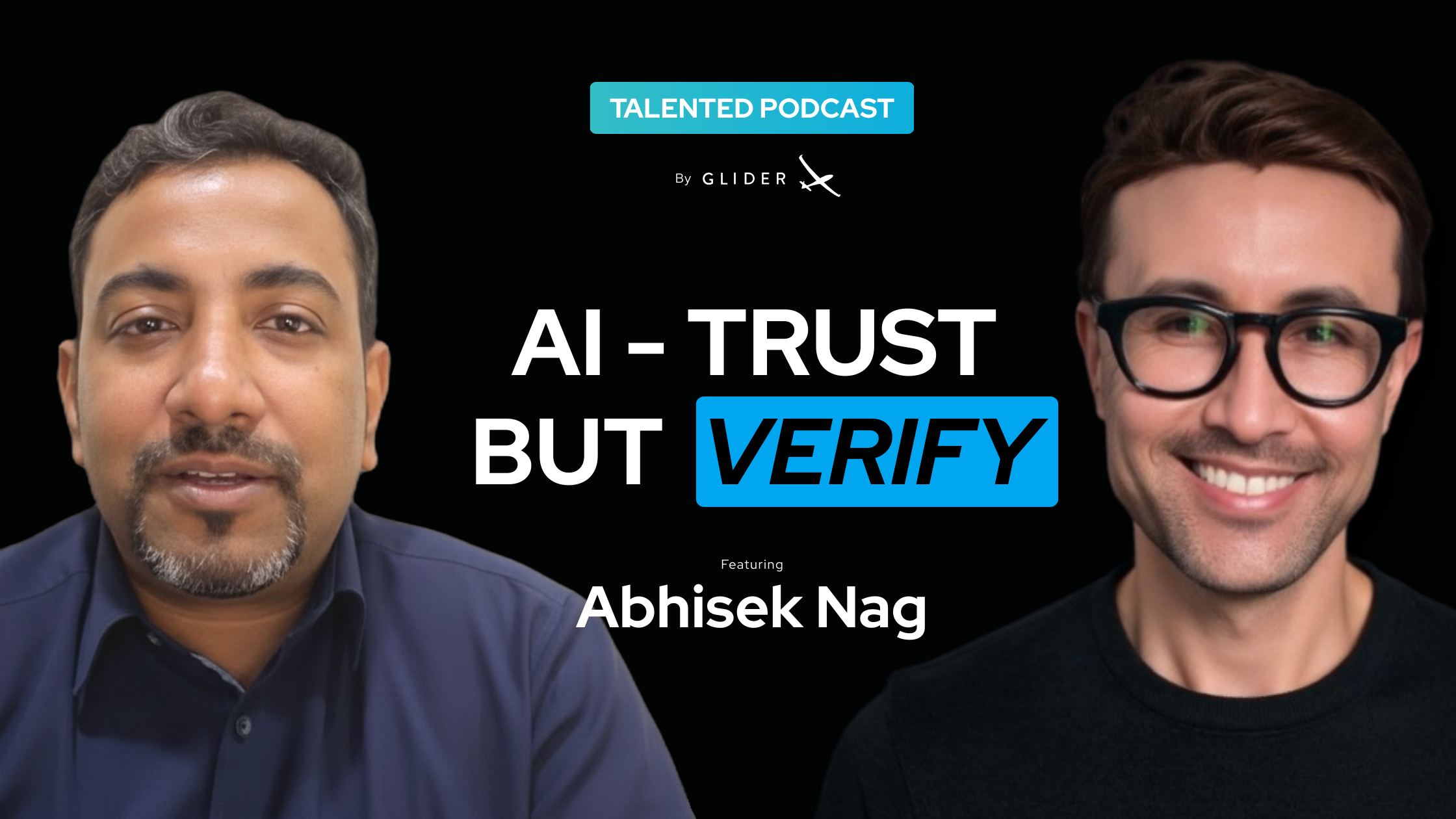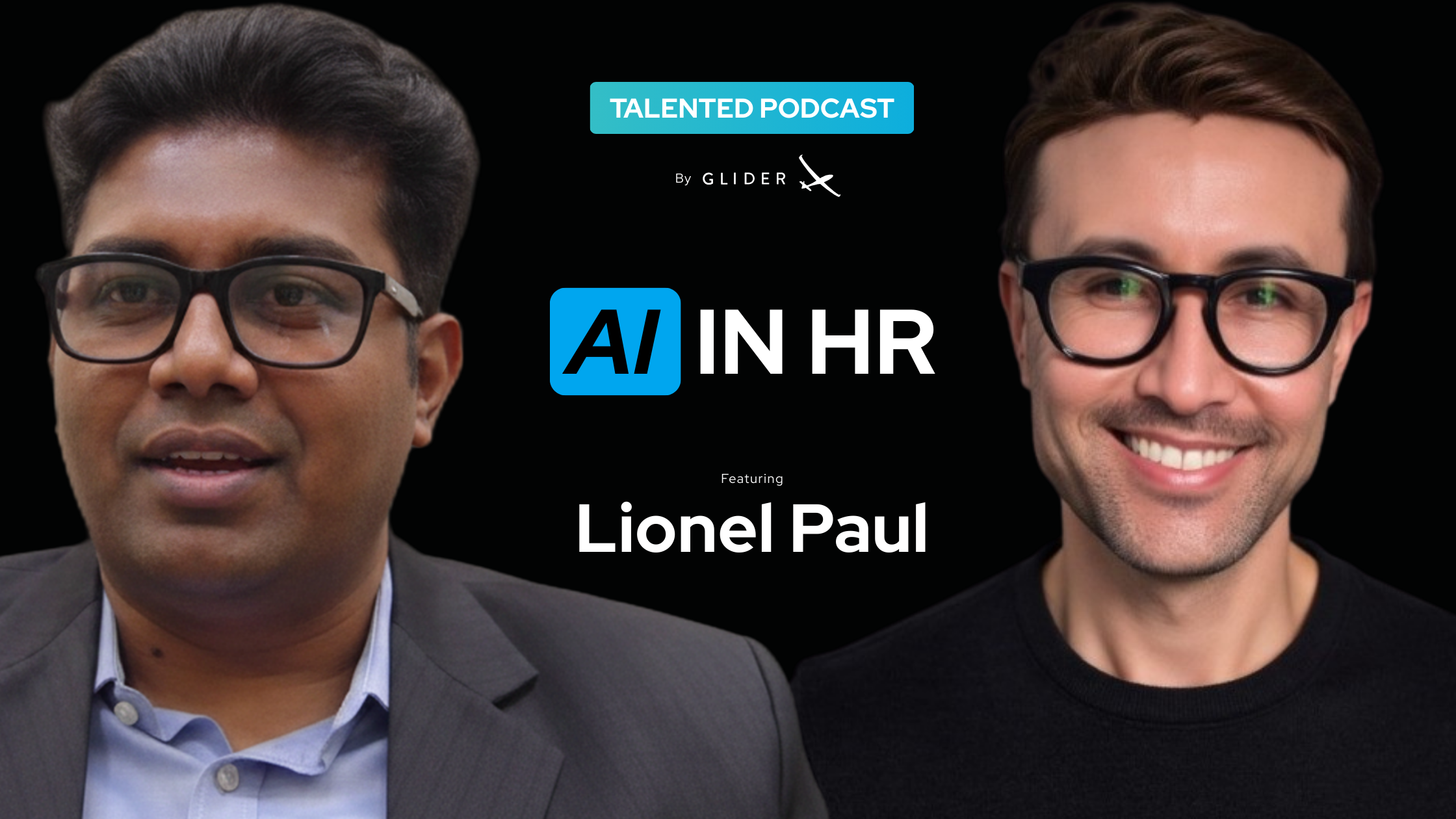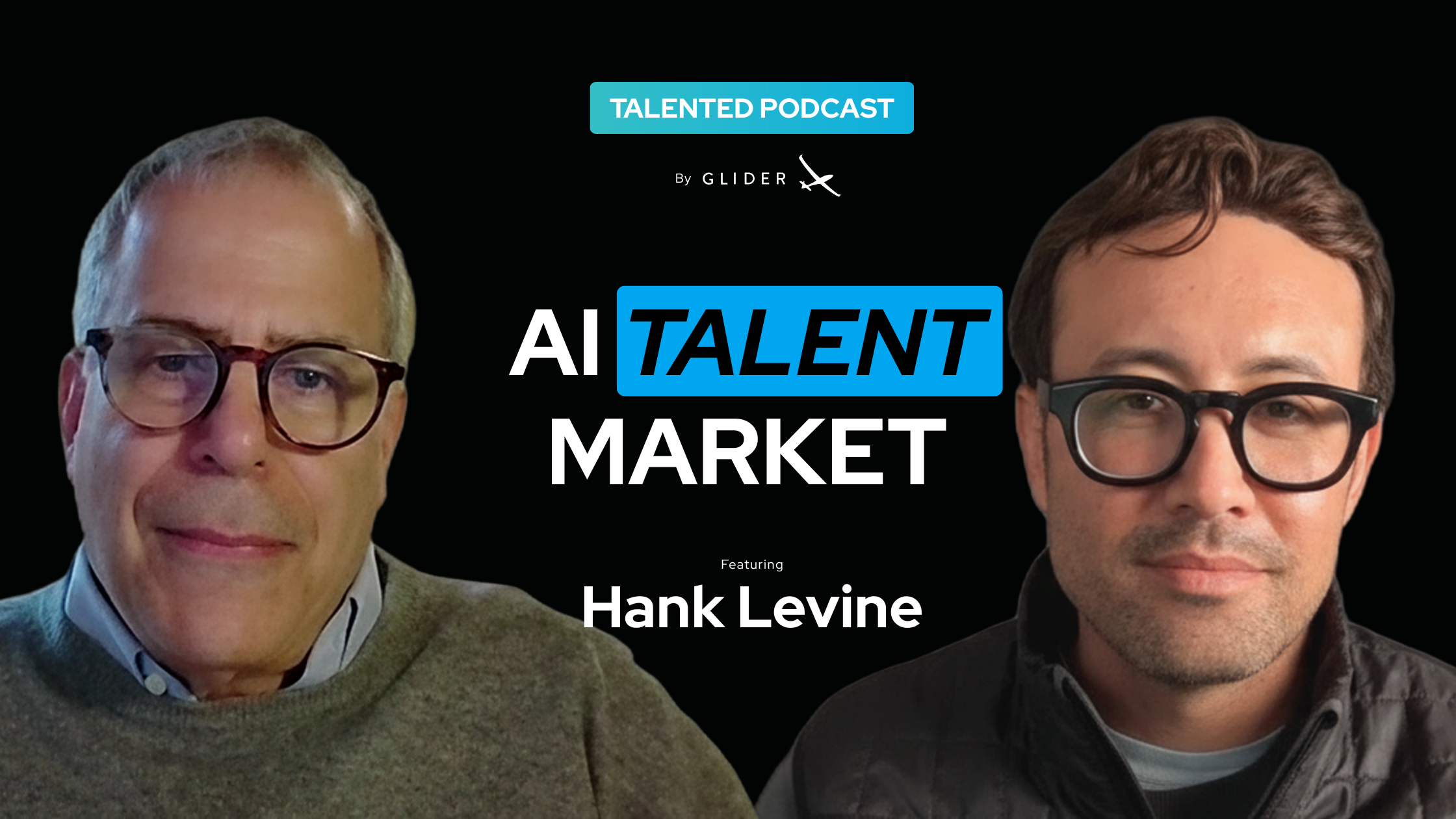
Make talent quality your leading analytic with skills-based hiring solution.

Glider AI sponsored an episode of Transformation Realness featuring host Kyle Lagunas and Yvette Cameron, Senior Vice President of Cloud HCM Product Strategy at Oracle. Yvette is a true force in workforce innovation, pushing the boundaries of what’s possible with skills-driven strategies, manager empowerment, and a tech-forward approach to culture transformation. Want to learn more about the future of HR? Keep reading!!
If you’ve been skeptical about every “skills-based” solution on the market, you’re not alone. Yvette brings clarity to the conversation: “There are so many ‘solutions’ … on the market that focus on skills-based recruiting, or skills-based learning,” she says. “But skills don’t stop when you hire people.”
Yvette challenges us to think bigger. Skills data isn’t just for one department—it’s for everything: scheduling, workforce planning, upskilling, and budgeting. When skills data becomes foundational, integrated across processes, it shifts from being a buzzword to a strategic driver.
One of the key challenges Cameron highlighted is the fragmentation of HR systems that claim to offer “skills-based” solutions. Many systems only focus on one aspect, such as recruiting or learning, without integrating the skills data across the entire organization. Cameron warned,
“When you have these siloed systems that are focused on that one process, you can improve the process, but skills don’t stop when you hire people.” The lesson? Organizations must adopt a holistic skills-based approach that spans the employee lifecycle.
Under Yvette’s leadership, Oracle has taken a comprehensive approach, aggregating skills data into a unified system of record. This richer, more accessible data allows organizations to align their workforce strategies to real business needs, turning skills into a foundational pillar for transformation.
Managers are the glue holding teams together, but as Yvette points out, they’re often left out of the conversation. “Managers are the ones who know how the real work gets done, right? They know the tasks, the unique skills, and the qualifications their people need.” Yet too often, managers are overloaded, expected to make sense of new tools without clear benefit to them.
For example, many HR leaders boast about self-service solutions, but Yvette challenges that thinking: “Is it really self-service? Or are you just shifting your work onto your managers?” Instead of adding to their burden, HR must empower managers with tools that provide support, insights, and business impact.
This is where AI can be a game-changer. Technology can nudge managers to check in with their teams, suggest agenda topics, or highlight team opportunities. But as Yvette reminds us, no tech can replace the empathy, trust, and collaboration required to lead effectively. “Culture trumps tech every time.”
Managers today are bearing a heavy load, juggling remote teams, increased responsibilities, and expectations to be empathetic leaders. Cameron pointed out the importance of empowering managers with tools that provide not just data, but actionable insights. “Even classic AI can bring information forward to managers and say, ‘Hey, it’s time to schedule a check-in. Here’s what you should meet about,'” she explained.
Cameron also emphasized the need for organizations to redefine “self-service” for managers. Instead of burdening them with more HR tasks, companies should focus on providing managers with direct access to the support and resources they need to succeed.
Generative AI is undeniably reshaping HR, but both Yvette and Kyle advise caution. Cameron noted Oracle’s cautious yet innovative approach, where AI is being leveraged to automate tasks like job description creation and performance evaluations, but with careful consideration of privacy and data usage. She remarked, “There are things you have to get under the covers and look at,” referring to potential risks in public AI models.
Oracle’s Gen AI capabilities, now in their third iteration, have expanded to include “agentic workflows,” automating low-risk tasks like talent reviews and scheduling. However, Cameron stressed that while AI is transformative, it needs to be coupled with organizational culture to truly drive change. People remain central to the process. “We don’t like to take the human out of the loop,” Yvette says.
And here’s the catch—if your culture isn’t ready, AI won’t fix it. For example, a manager hoarding talent won’t suddenly share skills because of a shiny new AI-enabled marketplace. As Yvette points out, “That’s a culture and a business process that has to be addressed.”
Cameron underscored that HR technologies, like talent marketplaces, only work if managers are willing to support employee development and mobility.
“No technology is going to change the fact that if you have a talent marketplace…and managers are treating their talent as their own moat and say no…then no technology is going to fix that,” she said.
This resonates with the broader theme that HR technology, while powerful, needs to be underpinned by a culture that promotes growth, flexibility, and collaboration across the organization.
Yevette Cameron left us with some powerful insights: the future of HR isn’t just about hiring for skills—it’s about integrating them throughout the entire employee journey. From workforce planning to performance management, a holistic approach is essential for keeping organizations adaptable, especially in high-stakes industries. While AI is revolutionizing HR, companies must balance innovation with a strong focus on privacy and data security.
For managers, it’s not just about having data—it’s about actionable insights that help them lead effectively. And as Yevette emphasized, no technology can replace a healthy culture. True transformation requires a company culture that fosters growth, collaboration, and mobility.
The takeaway? Tech is a tool, but people and culture are at the heart of success. Ready to embrace the future of HR? It’s time to rethink your approach!

The Limits of AI in Hiring Why Human Judgment Still Matters Abhishek Nag is not a conventional HR leader. An engineer turned entrepreneur turned HR executive, he currently serves as Global Head of HR at Fornax, a multi-entity services organization with more than 40,000 employees across 16 countries. That cross-functional background gives him a systems-level […]

Keeping the Human in the Loop: How AI Is Rewriting HR, Recruiting, and the Role of Leadership Featuring Lionel Paul David, Global CHRO, WaterTech India As the Global Chief Human Resources Officer at WaterTech India, Lionel Paul David has spent the past two years driving transformation across HR, communications, and ESG for one of India’s […]

The End of Transactional Recruiting Why AI Is Likely to Reduce Recruiter Headcount Before It Creates New Roles For recruiters worried about what AI means for their jobs, Hank Levine does not offer false reassurance. Hank is the founder of Be Additive Corporation, a global recruiting firm operating across 30 countries, with legal entities in […]